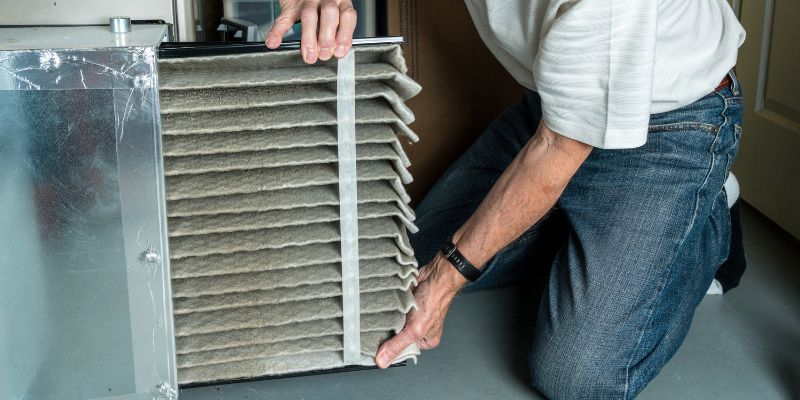When it comes to maintaining your HVAC system and ensuring good indoor air quality, understanding your filter options is key. HVAC filters not only protect your system but also keep your home or workplace air clean by trapping particles like dust, allergens, and bacteria. But with so many filter types available, it can get overwhelming.
Don’t worry! This guide will break down the most common types of HVAC filters, their pros and cons, and how to choose the right one for your needs.
What HVAC Filters Do
Before we jump into the types, let’s cover the basics. HVAC filters are designed to trap airborne particles as air moves through your HVAC system. These filters ensure clean, breathable air and also prevent debris from damaging your HVAC unit.
The performance of a filter is usually determined by its MERV rating (Minimum Efficiency Reporting Value). Higher MERV ratings (like 13-16) indicate better filtration of smaller particles but might restrict airflow in some systems. Most residential systems are compatible with filters rated MERV 8 to 13.
Now, let’s explore the different filter options.
Types of HVAC Filters
1. Fiberglass Air Filters
Fiberglass filters are the most basic option, made of spun fiberglass enclosed in a cardboard frame. They’re cheap, disposable, and widely accessible.
Pros:
- Affordable and easy to replace.
- Prevents large particles from entering the system.
Cons:
- Low MERV rating (1-4), meaning minimal filtration.
- Poor choice for people with allergies or asthma.
- Needs frequent replacement (usually a 30-day lifespan).
2. Pleated Air Filters
Made of polyester or cotton folds, pleated filters offer better performance for trapping small particles like mold spores and pet dander.
Pros:
- Moderate to high MERV ratings (5-13).
- More surface area for filtration compared to fiberglass filters.
- Options vary from disposable to reusable.
Cons:
- Slightly more expensive than fiberglass filters.
- High-MERV pleated filters can restrict airflow if your system isn’t built for them.
3. HEPA Filters
High-Efficiency Particulate Air (HEPA) filters are some of the most effective filters on the market, capturing up to 99.97% of allergens, bacteria, and even some viruses.
Pros:
- MERV rating of 17-20 for premium filtration.
- Excellent for allergy sufferers and those needing the cleanest air possible.
Cons:
- It can be costly and may require system modifications.
- Reduces airflow unless your HVAC system is designed for HEPA filters.
4. UV Filters
Ultraviolet (UV) light filters use germicidal UV light to kill bacteria, mold, and viruses in the air as they pass through.
Pros:
- Effective for microbial contamination, boosting indoor air quality.
Cons:
- Does not trap dust or allergens.
- Higher upfront costs and maintenance needs.
- Potential risks of ozone production in small quantities.
5. Electrostatic Filters
These filters use static electricity to attract and trap particles, making them effective for various airborne pollutants.
Pros:
- Available in both reusable or disposable versions.
- Good for those with mild allergies since they trap smaller particles like pollen and pet dander.
Cons:
- It may not capture larger particulates.
- It can restrict airflow if overused or clogged.

6. Washable Filters
Washable filters are eco-friendly and long-lasting, making them an appealing option for budget-conscious homeowners.
Pros:
- Reusable, reducing waste and saving money over time.
- Effective at trapping dust and large debris.
Cons:
- Limited efficiency for pollen, bacteria, or smoke particles.
- Requires diligent cleaning to avoid mold buildup.
7. Media Filters
Media filters are wider and thicker than standard filters, providing high efficiency without restricting airflow.
Pros:
- MERV ratings between 8-16.
- Long lifespan compared to other filters.
- Excellent filtration performance without stressing the system.
Cons:
- Must be professionally installed.
- Often more expensive upfront.
How to Choose the Right Filter
The right HVAC filter depends on your needs. If you’re just looking to protect your system and basic air quality isn’t a concern, fiberglass filters are sufficient. For allergy relief or homes with pets, pleated or HEPA filters are better suited to the job.
Always check your system’s compatibility with the MERV rating you’re considering to keep it running efficiently.
Keep Your HVAC System Running Smoothly with Fahrenheit Heating & Air Conditioning
Choosing the right filter is important, but so is maintaining your HVAC system to ensure peak performance. That’s where Fahrenheit Heating & Air Conditioning comes in. Our team offers expert advice on HVAC systems, including filter maintenance and replacement.
Whether you need help finding the perfect filter or want to schedule a routine checkup, we’ve got you covered. With our expert services, you can enjoy cleaner air and a healthier home. Contact us today to boost your indoor air quality!
Final Thoughts
Understanding your HVAC filter options is a simple but essential part of maintaining your HVAC system and improving your home’s air quality. From basic fiberglass filters to advanced HEPA options, there’s a solution to suit every need and budget.
Remember, clean filters mean cleaner air and a happier, healthier home. Replace them regularly and consult professionals if you’re unsure about the best choice for your HVAC system!
